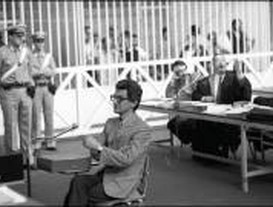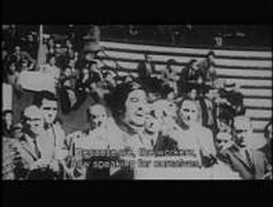Andreas Pichler,
Alexandra Weltz
2004.
Germany.
vo Anglès,
Italian,
Francès.
s Anglès,
Castellà.
54’
1 de juliol de 1997. Un home gran arriba a Itàlia en un vol de París. Immediatament les forces especials dels Carabinieri l'arresten. Antonio Negri havia tornat al seu país natal voluntàriament desprès de 15 anys a l'exili. El diari Liberation l'anomena “la tornada del diable”. Al llarg dels anys, pocs intel·lectuals han provocat tanta admiració i odi, o tantes lloances i atacs, com Antonio Negri. El seu llibre Imperi, escrit amb Michael Hardt, fou un èxit de vendes internacional. Una anàlisi de la nova economia global, fou aclamat amb un nou i audaç manifest pel segle XXI, i immediatament convertí a Negri en dels principals portantveus internacionals del moviment antiglobalització.
http://www.gebrueder-beetz.de/
